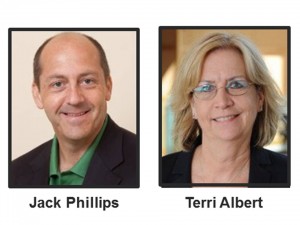Theoretically, loyalty programs are supposed to motivate customers to be loyal. But does it always turn out that way? Evidence is mounting that points to the fact that loyalty programs condition customers to expect discounts, and they don’t always cultivate loyalty. And the danger with that discount-driven scenario is that:
The loyalty program becomes only as good as the next discount.
Recent estimates by Colloquy are that there are over 2.6 billion loyalty program memberships in the USA. Considering there are about 240 million adults in the USA, that translates to a little over 11 loyalty memberships per adult and in the past two years the number has grown at about 26.7%. With overall population growing at 1% per year in the US, that accelerating loyalty program growth suggests that loyalty programs are quite popular. But do they engender loyalty?
Separate data from research by Maritz has revealed that active membership grew at a slower rate over the same period and that the percent of active memberships declined from 46% to 44%. So we have loyalty programs acquiring new members at a brisk clip, but the decline in active status suggests that a significant and growing portion of them are unengaged.
 Those market dynamics motivated us to work with two organizations this year to study loyalty programs from two viewpoints – one from the enterprise perspective, and one from the consumer perspective – and combine the two for some interesting conclusions. The IIA (International Institute for Analytics) conducted the research to get the enterprise perspective,
Those market dynamics motivated us to work with two organizations this year to study loyalty programs from two viewpoints – one from the enterprise perspective, and one from the consumer perspective – and combine the two for some interesting conclusions. The IIA (International Institute for Analytics) conducted the research to get the enterprise perspective,  and we worked with the graduate program at Northwestern University’s Kellogg School of Management ("Kellogg") to get the consumer perspective. Many rich insights were gained in taking this two-pronged approach and a few clear conclusions emerged.
and we worked with the graduate program at Northwestern University’s Kellogg School of Management ("Kellogg") to get the consumer perspective. Many rich insights were gained in taking this two-pronged approach and a few clear conclusions emerged.
First and foremost, we found that loyalty programs may have once provided a competitive advantage but now they are expected by consumers. In addition, analytics play a key role in enabling the kind of relevance and customization associated with higher-performing loyalty programs. And organizations looking to engender loyalty should address the overall customer experience (across all channels) before turning to a loyalty programs to retain customers. The main reason behind that is:
A good loyalty program will not make up for
below average service, or poor product quality or selection.
 Those and other highlights from the two studies will be shared during a session at the Premier Business Leadership Series conference that I will moderate with Jack Phillips, CEO of the IIA and with Terri Albert, PhD, the Kellogg Professor that oversaw the consumer research. Customer loyalty is a strategic imperative for all businesses, so please join us for what I hope will be an informative session. If you are not able to join us, stay tuned here as we’ll share the content in other formats afterward.
Those and other highlights from the two studies will be shared during a session at the Premier Business Leadership Series conference that I will moderate with Jack Phillips, CEO of the IIA and with Terri Albert, PhD, the Kellogg Professor that oversaw the consumer research. Customer loyalty is a strategic imperative for all businesses, so please join us for what I hope will be an informative session. If you are not able to join us, stay tuned here as we’ll share the content in other formats afterward.
As always, thank you for following!

1 Comment
Pingback: Let’s chat about quality on Twitter